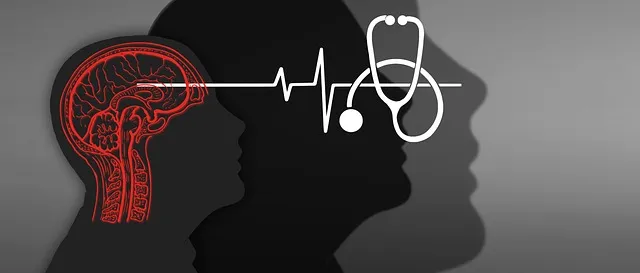Crisis Intervention Teams (CITs) at Kaiser Permanente Mental Health Parker are vital for immediate crisis support and de-escalation, with comprehensive training recognizing early warning signs and complex behaviors. Their work fosters safety, personalized care plans, and community resources, promoting long-term mental wellness. Kaiser Permanente's innovative training program combines evidence-based techniques and cultural sensitivity, empowering employees to empathetically navigate crises. This holistic approach improves patient outcomes and service delivery, modeled after successful teams like Parker's.
In today’s world, effective crisis intervention teams (CITs) play a pivotal role in mental health care. These specialized groups ensure swift and competent support during critical situations. The article explores the crucial aspect of CIT training programs, focusing on best practices by examining Kaiser Permanente’s approach. We delve into the essential components that make these programs successful, highlighting strategies that can enhance crisis response in mental health settings. By understanding the impact of CITs, such as those implemented by Kaiser Permanente in Parker, we can revolutionize care and save lives.
- Understanding Crisis Intervention Teams: Their Role and Impact in Mental Health Care
- Kaiser Permanente's Approach to Training: Best Practices and Strategies
- Essential Components of Effective Crisis Intervention Team Training Programs
Understanding Crisis Intervention Teams: Their Role and Impact in Mental Health Care

Crisis Intervention Teams (CITs) play a pivotal role in mental health care, especially in addressing acute crises and preventing potential harm to individuals experiencing severe emotional distress or thoughts of self-harm. These specialized teams are designed to provide immediate support, de-escalation techniques, and crisis resolution strategies. At Kaiser Permanente Mental Health Parker, for instance, CIT training programs have become integral to ensuring effective and compassionate care delivery.
The impact of CITs extends beyond the immediate crisis situation. They foster a sense of safety and trust in individuals struggling with mental health challenges. Through comprehensive training that includes Self-Esteem Improvement and Social Skills Training, CIT members gain invaluable knowledge in recognizing early warning signs, understanding complex behaviors, and offering evidence-based interventions. This enables them to not only react effectively during crises but also to support long-term Mental Wellness by advocating for personalized care plans and promoting community resources.
Kaiser Permanente's Approach to Training: Best Practices and Strategies

Kaiser Permanente, a renowned healthcare organization, has pioneered innovative approaches to crisis intervention team training, prioritizing both effectiveness and cultural sensitivity in mental healthcare practice. Their program focuses on empowering employees to swiftly identify and respond to individuals in distress, ensuring timely support for those facing mental health challenges.
The organization emphasizes practical strategies, combining evidence-based techniques with self-care practices to foster a supportive environment. Through interactive workshops and simulations, participants learn to navigate complex situations with empathy, promoting mental wellness within their communities. This holistic approach not only equips team members with crisis intervention skills but also encourages them to advocate for cultural sensitivity, ensuring every individual receives personalized care tailored to their unique needs.
Essential Components of Effective Crisis Intervention Team Training Programs

Effective crisis intervention team training programs are integral to ensuring swift and competent support for individuals in mental health crises, particularly within healthcare settings like Kaiser Permanente. These programs equip teams with essential tools to navigate complex situations and foster positive outcomes. A well-rounded curriculum should encompass several key components, including comprehensive communication strategies that promote clear and empathetic exchange between team members and clients.
Additionally, training should delve into evidence-based emotional well-being promotion techniques tailored for diverse populations, fostering an environment of safety and support. Equally important is the teaching of emotional regulation skills to help both interventionists and those in crisis manage intense emotions, ultimately preventing escalations and facilitating constructive resolution. Such comprehensive programs are transformative, enabling healthcare professionals to confidently and compassionately address mental health crises, much like Parker’s dedicated teams do, leading to improved patient outcomes and enhanced service delivery.
Crisis intervention team (CIT) training programs, as exemplified by Kaiser Permanente’s approach, play a pivotal role in enhancing mental health care. By equipping healthcare professionals with the necessary skills and knowledge, these programs ensure effective response to individuals in crisis. In the context of Kaiser Permanente Parker, such initiatives not only improve patient outcomes but also foster a supportive and compassionate environment. Integrating best practices and focusing on essential components like role clarity, communication, and de-escalation techniques, CIT training emerges as a game-changer in managing mental health crises, ultimately enhancing the quality of care.






